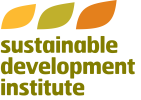Liberia
Liberia hosts large areas of the Upper Guinean Forest ecosystem, recognised globally for its extremely high biodiversity. The country has committed to conserving 30 percent of its natural forests, essential for the livelihoods of local communities who directly depend on these forests and significant in the global fight against climate change.
Despite national policy commitments made by the government at the national and international level and the emergence of numerous private sector initiatives to halt deforestation, Liberia has made little progress reducing deforestation in recent years. Rather, the drivers of deforestation, including illegal and destructive logging and industrial agriculture, are gaining in power and speed.
Illegal logging in government-allocated logging concessions covering more than 1 million hectares and industrial-scale logging under community forestry licenses are accelerating at an alarming rate. Huge blocks of forest land inhabited by local communities have been handed out to agro-business. The political elite is grabbing lands from communities for plantations as well.
More than 60 percent of Liberia’s 5 million population relies on agriculture for their livelihoods and food for their households. The sector employs more than 80 percent of Liberians with women constituting more than half of the labour force. Instead of supporting smallholders, the government has allocated large tracts of land to concessions for oil palm cultivation. As a result, forest communities in several counties have been devastated by the impacts of industrial oil palm.
Environmental and Human Rights Defenders (EHRDs) and local activists that demand respect for community and human rights, and improvements in the overall well-being of communities affected by the oil palm companies, have been harassed, intimidated, and have suffered unlawful arrests. In instances where communities have stood up for their rights, they have been targeted by the state and state-security apparatuses.
Liberia’s legal framework governing forests has institutionalised the participation of Local Communities and Civil Society in forest governance. Liberia has also made important progress on land tenure reforms. The country adopted a Land Rights Policy in 2013 formally recognising customary collective community land rights. It passed into law in 2018, providing communities with formal ownership over their customary lands.
Liberia programme
Vosieda targets a company that is logging illegally in Numopoh and achieved that the Forest Development Authority (FDA) is now researching this company. VOSIEDA is building the capacity of a women and youth group to participate in local decision-making processes such as negotiations on the social agreements with companies. VOSIEDA is also building capacity with communities for independent forest monitoring (IFM) and it is investigating cases of forest abuse within Sinoe County.
SDI supports communities in the Sinoe landscape that have a Memorandum of Understanding with palm oil company Golden Veroleum Liberia (GVL) or are about to start negotiations, to resist and stand stronger in the negotiations. On the basis of this community work, SDI takes the lessons learned and positions from the community to the national level to influence the Land Rights Law implementation and the agriculture policy review. SDI campaigns with international partners to ensure that financiers of deforestation and human rights violators are exposed and pushes for changing their investment strategies.
SDI facilitates the national CSO Palm Oil Working Group to ensure that NGOs stand stronger united to influence policies and palm oil companies and are part of the development of national strategies, policies and laws for the agriculture sector of Liberia. Tropenbos also collaborates with the CSO Palm Oil Working Group on smallholder agriculture. The working group achieved a considerable presence at the task groups organised by the Ministry of Agriculture for a national oil palm action plan and strategy and will be using this space to influence these processes in 2020 to enhance community rights and forest protection.
Programme partners
Sustainable Development Institute (SDI) is the Liberian charter of Friends of the Earth International, the world's largest grassroots environmental network. SDI works to transform decision-making processes of natural resource management in order to share benefits equally. SDI's work aims to create space for the participation of local communities in decision making processes on natural resources. SDI works to support and enhance local communities contributions to those processes and strengthen mechanisms that will ensure that communities receive a fair share of the benefits derived from natural resource exploitation.
Volunteers for Sustainable Development in Africa (VOSIEDA) is a Liberian development organization and a network of volunteers working to promote prosperity, reduce extreme poverty, and strengthen peace and stability in Liberia and West Africa’s Mano River Union Basin region: Liberia, Guinea, and Sierra Leone. Vosieda runs programmes to build the capacity of communities for independent forest monitoring and is investigating forest abuse.

